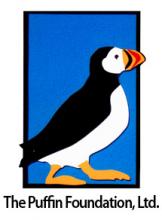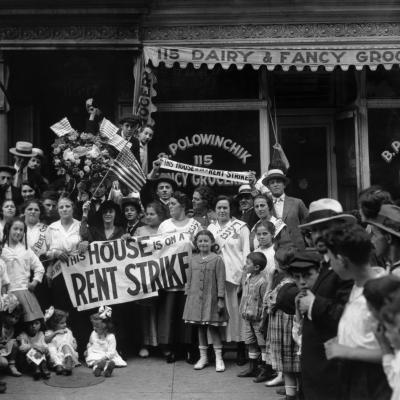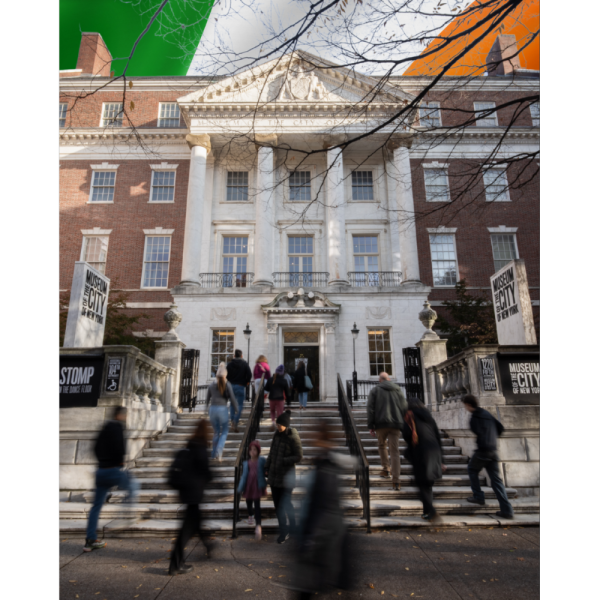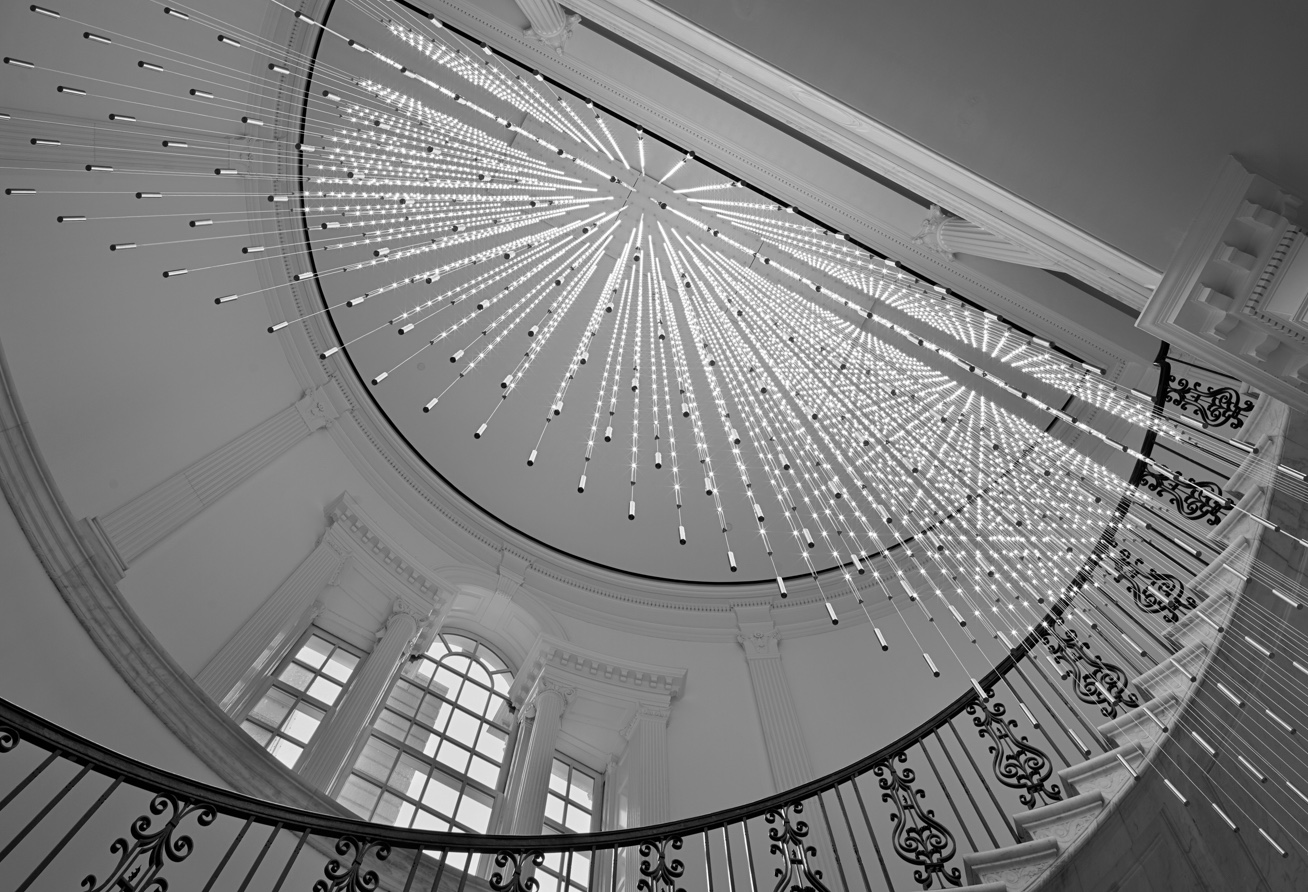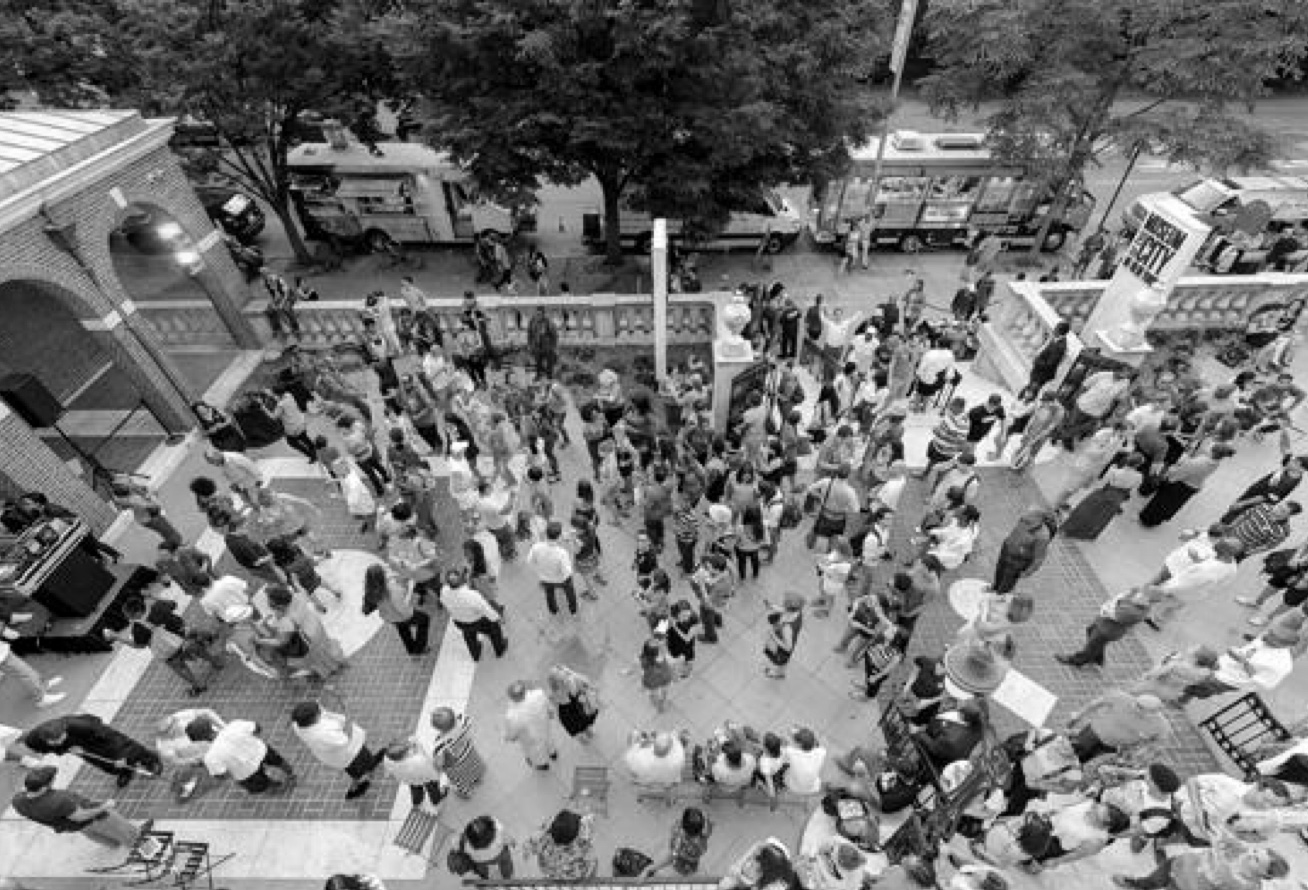6th Annual Teaching Social Activism Conference: Intersections
This event has passed.
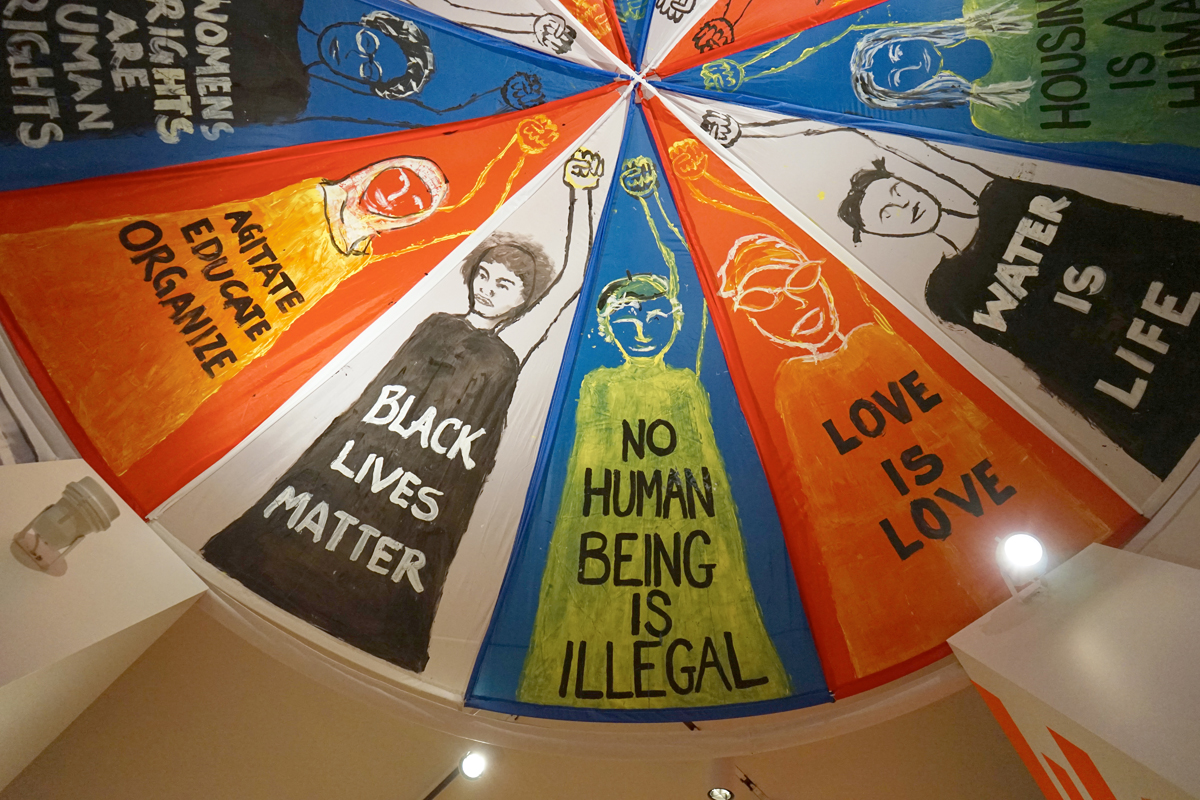
6th Annual Teaching Social Activism Conference
This program took place on May 20, 2018. For the 2019 Conference, please click here.
This exciting day was made possible by The Puffin Foundation Ltd.
#ActivistNY
2018 Theme: Intersections
How can we support our students and ourselves, build understanding within and across class, race, and gender, and construct curricula that cross disciplines to spark novel insights? Join educators to address, celebrate, unpack, and encourage intersection in the classroom and beyond.
Schedule of the Day
- 8:00 – 9:00 a.m. Check-in
- 9:00 a.m. Opening Address: Intersections with poet Elizabeth Acevedo
- 10:10 – 11:00 a.m. Session I: Presentations and Gallery Activations
- 11:20 a.m. – 12:10 p.m. Session II: Presentations and Gallery Activations
- 12:10 – 1:10 p.m. Lunch
- 1:10 – 2:00 p.m. Session III: Presentations and Gallery Activations
- 2:20 – 3:10 p.m. Session IV: Presentations
- 3:10 – 3:30 p.m. Materials Distribution and Networking
Sessions are 50 minute long workshops and panels presented by educators, for educators. Gallery activations include curator- and educator-led tours and facilitated teach-ins.
See below for a full listing of all session workshops.
Highlights
- 28 Exciting interactive workshops, including:
- Tools to Fight for Restorative Justice
- Solidarity Beyond Borders: Transnational Resistance as Healing
- Mapping Community Needs and Assets in NYC
- #WokeTeachers: Teaching Intersectional Feminist Texts
- Gender in Early Childhood Education
- Bold Moves for Brave Spaces: Bystander Intervention Training
- Activate, Create, Elevate: Arts and Media as a Catalyst for Social Change
- Tell Me How: Creating Space and Spaces for Youth Agency
- Sonata, Sonnet, & Social Justice
- ...and more!
- Engaging tours and facilitated conversations in the Museum’s exhibitions Activist New York, Beyond Suffrage: A Century of New York Women in Politics, King in New York, and New York at Its Core
- Giveaways for attendees including the just-published Activist New York book and a poster for your classroom
- Lunch provided
- Opportunities to network, listen, learn, and engage with hundreds of colleagues
- Information about the Museum’s online materials, scholar essays, digital collections, and lesson plans
Giveaways
Registered participants will receive the just-published Activist New York book, a poster for their classroom, and a boxed lunch.
Sessions
-
Session I: 10:10 - 11:00 a.m.
-
The Process and Promise of Community-Based Youth Research: Many teachers hope to empower their students. But what if we flipped the paradigm, supporting youth as they conduct their own inquiry into issues that matter to them? This youth-led session will provide insight into the University of Pennsylvania-St. Thomas Aquinas community research partnership in South Philadelphia and showcase youth research projects targeting a range of social justice issues. Educators will walk away with a better understanding of the process and promise of youth-driven research and a vision for doing this work in multicultural and multilingual settings.
-
WeWriteLife for Justice: Police Violence and Incarcerated Youth: Join us as we speak and write life in community, foster hope, and bring awareness through writing. WeWriteLife is a project dedicated to writing life into the vacuum of injustice by sharing stories of our collective humanity. Presenters will share how they use letter writing and poetry responses to serve as points of light to youth who are incarcerated, police officers who are pursuing justice, and mothers impacted by police violence. Collectively, participants will explore how we can equip ourselves to host meaningful conversations around issues of injustice and inspire students to engage in Just Acts.
-
FILMS BYKIDS: Promoting Understanding and Inspiring Action through Cinematic Journeys: How can we use film and youth-driven media to cultivate empathy, increase student knowledge, and inspire action? Join us for a screening of the FILMS BYKIDS documentary Poet Against Prejudice, in which a young filmmaker’s story depicts the intersection of immigration, religious freedom, bullying, and art, followed by a panel discussion and Q&A. FILMS BYKIDS, a joint production of THIRTEEN and BYkids, promotes understanding by using storytelling to illustrate the impact of global issues on young people.
-
Expansive Spaces: Gender in Early Childhood Education: In this workshop, we will learn about and discuss gender development in young children. Through discussions of how rigid gender roles and stereotypes can limit children's growth and self-expression, we will collectively develop and role-play strategies to facilitate expansive gender performances and to create inclusive classrooms which support a variety of gender expressions. We will also discuss how to limit the perpetuation of gender stereotypes – from how children are complimented to how the classroom is organized – and how to work with family members who are struggling with their children's gender non-conforming dress or behaviors.
-
You Are More Powerful Than You Think: Art & Social Change: An artist’s place is to provoke, to voice, and to enlighten. Today, more than ever, we need to stop, look, and listen to directly confront social inequality. Art can do more than confront issues: it can be a critical catalyst for change. In this workshop, we will introduce participants to a wide range of artists whose work confronts social and political injustice as an introduction to teaching about social change. Then, participants will engage in a mini art project that is a direct response to a social issue that concerns them.
-
Solidarity Beyond Borders: Transnational Resistance as Healing: Join us to unpack the question: what does it mean to create classrooms that are in solidarity with people of color down your block and beyond colonial borders? This workshop highlights how two femmes of color educators have created solidarity amongst themselves and other women/femmes/gender non-binary people of color throughout the world, by establishing Women of Color in Solidarity. We view ourselves and our students as citizens of the world who also represent transnational borders coming together. We carry resilient pieces of our lands, our ancestors, and our traditions within us.
-
Museum of the City of New York Activations:
-
Gallery Teach-In: Activist New York, with Monica Montgomery, Founding Director, Museum of Impact
-
Gallery Tour: Beyond Suffrage: A Century of New York Women in Politics
-
Gallery Tour: King in New York
-
-
-
Session II: 11:20 a.m. - 12:10 p.m.
-
#WokeTeachers: Teaching Intersectional Feminist Theory and Activism: Since the 2016 election, an increasing number of teachers across the U.S. have started to offer new courses focusing on women’s and gender studies as well as re-imagining their curriculum design using feminist and intersectional approaches. Globally, teachers are also joining the feminism-in-schools movement with an exciting force. But it’s one thing to be feminist and another to be intersectional feminist. What do these words mean and how do we begin to re-imagine our content and pedagogy using an intersectional feminist framework? Using Black and Latina feminist texts, this session will focus on how to use intersectional feminist theory and pedagogy to re-imagine classroom content, student writing, and student activism.
-
Mapping Community Needs and Assets in NYC: This session will equip educators to use both qualitative and quantitative research to bolster efforts to drive attention and resources to underserved communities. Participants will explore research tools they can use to map needs and assets in NYC, learning how multiple risk factors intersect in some communities leading to vastly different outcomes for a child born in one neighborhood vs. another. We will also discuss best practices for looking beyond statistics and the essential step of engaging community members in any kind of needs assessment or advocacy undertaken on their behalf.
-
The New Colossus Project: An Arts-Based Curriculum to Explore the Topic of Immigration: This fun and interactive session will utilize arts-based curriculum to discuss and explore the important topic of immigration with students. Participants will engage in an image-work activity of statue building and discussion of the iconic poem, “The New Colossus,” by Emma Lazarus, that is embedded on the base of the Statue of Liberty. Age appropriate for most grades, the workshop will expand upon teaching techniques for incorporating multiple art forms in classrooms to explore pressing issues.
-
The Muslim American Experience in Schools: Addressing Implicit Bias and Exclusion: In this workshop, we will address the basics of Islam that are necessary for understanding that it is not a monolith. Through discussion, we will also address types of implicit and explicit discrimination and racism against Muslims using specific examples and ways to address these situations. Educators will leave with ideas and strategies for how we can create safe and inclusive spaces in schools for Muslim students and educators.
-
In Sickness and In Wealth: Health Disparities in NYC: All humans have the right to breathe clean air, eat nutritious food, and live safe, healthy lives. We all have the right to medical care. But depending on a person's zip code in NYC, these rights are denied to many. Led by students who spent the past year training in human rights and photojournalism and investigating health disparities, this interactive presentation will raise awareness of five health disparities in NYC. Participants will view an exhibit created by students and learn how they can use it in their classrooms.
-
Middle School Math and Social Justice Activism: Data is a clear tool that can demonstrate real-world inequalities. Learn about projects that help students understand how data provides insights into inequalities related to social identifiers such as gender, race, and socio-economic status, as well as environmental issues. Presenters will share examples of 6th through 8th-grade project descriptions and student work. Participants will have the opportunity to share their own work and potential project ideas during the session as time permits and presenters will create a google group at the end of the presentation for further sharing.
-
Bold Moves for Brave Spaces: Bystander Intervention Training: Join us for a youth-led bystander intervention training on de-escalating situations involving racism, sexism, and sexual violence. This interactive workshop empowers participants to be agents of change in their communities by equipping them with essential de-escalation and survivor-support skills for everyday situations. This training delivers culturally sensitive and witness-centered approaches to intervening in situations involving bias-motivated harassment and the appropriate measures to take to report hate crimes in New York City.
-
Museum of the City of New York Activations:
-
Gallery Teach-in: Intersectionality in Beyond Suffrage: A Century of New York Women in Politics
-
Gallery Teach-in: Movement for Black Lives in Activist New York
-
Gallery Tour: King in New York
-
-
-
Session III: 1:10 - 2:00 p.m.
-
Youth Led Inquiry into Race and Racism: What is race and what is racism? How can communities effectively mobilize to fight oppression? These are questions explored by the 5th graders of Class 511 at PS 194, the Countee Cullen School in Central Harlem. In this session, participants will hear presentations from the 5th grader scholars about their integrated ELA and social studies unit of study on the history of race and racism. There will be an opportunity to provide feedback, ask questions, and also hear the perspective of their teachers on this youth-led inquiry unit.
-
Building Tolerance Through Art: This session explores how shadow puppet theatre techniques can help students communicate their view of the world, its people, and its cultures. As artists and educators, we hope to provide alternative narratives about conflicts within our world, finding resolutions that offer a better understanding among people and societies. The use of shadow theatre, storyboarding, and puppet performance to complete a short visual narrative will help students find connections that unify rather than isolate and divide.
-
Black Panther: Champion for His Community and Beyond: Drawing inspiration from the new Black Panther movie, this session encourages participants to explore the intersections of race and activism. Using movie and comic clips, superhero powers, activities, and art, youth will be inspired to raise their voices for change.
-
We Are Intersectionality: Creating Spaces for Teaching Race, Class and Gender Politics through a Student-Driven Classroom: If we take the opportunity to make space for students to voice their experiences and values and teach them how to listen, empathize and make connections to one another’s values and experiences, then we can organically teach the politics of race, class and gender to our students in a way that is deeply personal, meaningful, and accessible. In this session, educators will participate in a restorative circle where they will engage in thought exercises that will help them think about their own values and experiences and how we can create these spaces for our students.
-
Teaching Feminism to Teenage Boys: How does a female teacher get 25 young men interested and invested in incorporating feminism into their daily lives? Explore a unit created via an intersectional approach that encouraged young men in the classroom to see that feminism benefits everybody and that feminism was not a threat to themselves or their masculinities. In this workshop, educators will examine this student-centered PBL-unit to explore the intersections of design thinking, digital media, and feminist theory. Educators will then have the opportunity to introduce these intersections and intersectionality into their curriculum.
-
Tools to Fight for Restorative Justice: Screening and Teaching Digital Timelines: As educators, artists, and activists we live our movements' stories every day but may lack resources to engage our speculative imaginations and envision the world we want. Fighting for education justice, we often know what we're fighting against but may not see what we're fighting for. Using a digital timeline developed with Global Action Project's Movement History Timeline and a short video produced in partnership with the Dignity in Schools campaign, participants will look at stories of educational organizing across NYC and add their own educational experiences to deepen their political analysis and imagine ways to liberate our schools.
-
Tell Me How: Creating Space and Spaces for Youth Agency in Literacy Instruction: This workshop highlights a youthtopia in an urban Texas high school, where students develop critical literacies to “read” and “write” the world in order to understand and transform oppression. Centered around culturally responsive strategies, participants will learn activities and techniques that can be immediately implemented in any class at any level to help students begin to form an analysis of social justice and expand their awareness of systems of oppression. The session will conclude with an interactive audience discussion about the possibilities for creating youthtopias that engage critical literacies and youth research inside of traditional literacy instructional space.
-
Museum Activations
-
Gallery Tour: Beyond Suffrage: A Century of New York Women in Politics
-
Gallery Teach-In: Art in the Open: Fifty Years of Public Art in New York
-
Gallery Tour: Activist New York
-
-
-
Session IV: 2:20 - 3:10 p.m.
-
Activate, Create, Elevate: Arts and Media as a Catalyst for Social Change: In this interactive workshop, participants will experience the Catalyst Arts Framework, a structure for engaging youth, educators, and community organizations in a process of participatory art-making that responds to critical social issues to create impact in their communities. Using youth performances, coupled with media examples in current events as prompts, participants will develop artistic responses that promote social change.
-
Sonata, Sonnet, & Social Justice: This workshop is an exploration of the interconnections between music and rhythmic patterns, creative writing, and creatively responding to social issues/challenges in a way that adds to or provokes discourse. Are we saying exactly what we want to say? Are we saying everything that needs to be said? How do we create and understand expressive patterns that allow us to code switch between artistic expressions? These are some of the themes that will be addressed through hands-on rhythm and movement exercises as we work towards building creative social justice activations.
-
Teaching Debate as Social Activism: This student-led panel will discuss how debate can be implemented in the classroom and extracurricularly to foster a greater understanding and passion for advocacy on important current sociopolitical topics at a high level for scholars in the Middle School classroom. An info session on methods of implementation and success will be followed by a demonstration from scholars and a Q&A session. Participants will come away understanding the necessity for debate in a classroom that seeks to teach and inspire social activism and critical thinking and with tools to start their own program at school!
-
Announcing Who We Are: Art for Community Engagement: How do we make it clear to others what we value as a community? Learn how large-scale, collaborative community artworks can be used to define and describe shared values and the personal identities of community members. Engage students, families, and staff in meaningful art-making that makes a statement. Make a poster and learn basic printmaking skills to produce political art for your community. *Note: This workshop is limited to the first 25 attendees.
-
Learning at the Intersection: Why You Don't Have to Entertain Dehumanization as a Viewpoint: The term "intersectionality" was coined by Black feminist lawyer, Professor Kimberlé Williams Crenshaw in 1989 to illustrate the experiences of racism and sexism in the lives of Black women in the US. Intersectionality has since become an analytical tool for looking at how different power structures interlink, function and impact people's experiences -- especially in liberation movements. In this workshop, we will explore how the intersection of our identities impacts the ways in which we are able to access and navigate educational institutions. We will end with a call-to-action on how to leverage existing resources to create individual "mini-movements."
-
When Race was Born in America: An Anti-racist Pedagogy: This workshop session will zoom in on a historical moment in the 1670s when race was ‘invented’ in the North American colonies that became the U.S. We will showcase a lesson plan designed to teach high school students how race was constructed as a social and legal category in America. Workshop participants will take on the role of students analyzing primary source documents in an inquiry-based approach to the question, “When did ideas about race take hold in this country and why?” Group discussion will include brainstorming on how to adapt the proposed lesson to a variety of audiences and student populations and how to enact and promote anti-racist pedagogy.
-
About the Teaching Social Activism Conference
The Teaching Social Activism Conference is an annual event at the Museum of the City of New York. Inspired by the content of the Museum’s groundbreaking exhibition, Activist New York, this day highlights the best practices for teaching this important subject to students of all ages. Join educators, youth, and scholars for this free, full day of engaging conversations, thought-provoking sessions, and gallery tours exploring the various tools and techniques used to engage students and communities in the history and practice of social change.
CTLE
The Museum is CTLE certified. Participation in the full day of this program provides 6 hours of CTLE credit. CTLE forms will be distributed at the conclusion of the day.
Questions? Reach out to pd@mcny.org.
The Puffin Foundation
Education programs in conjunction with Activist New York and Beyond Suffrage: A Century of New York Women in Politics are made possible by The Puffin Foundation Ltd.
Activist New York is the inaugural exhibition in The Puffin Foundation Gallery, which is dedicated to the ways in which ordinary New Yorkers have exercised their power to shape the city's and the nation's future.
The Frederick A.O. Schwarz Education Center is endowed by grants from The Thompson Family Foundation Fund, the F.A.O. Schwarz Family Foundation, the William Randolph Hearst Endowment, and other generous donors.
